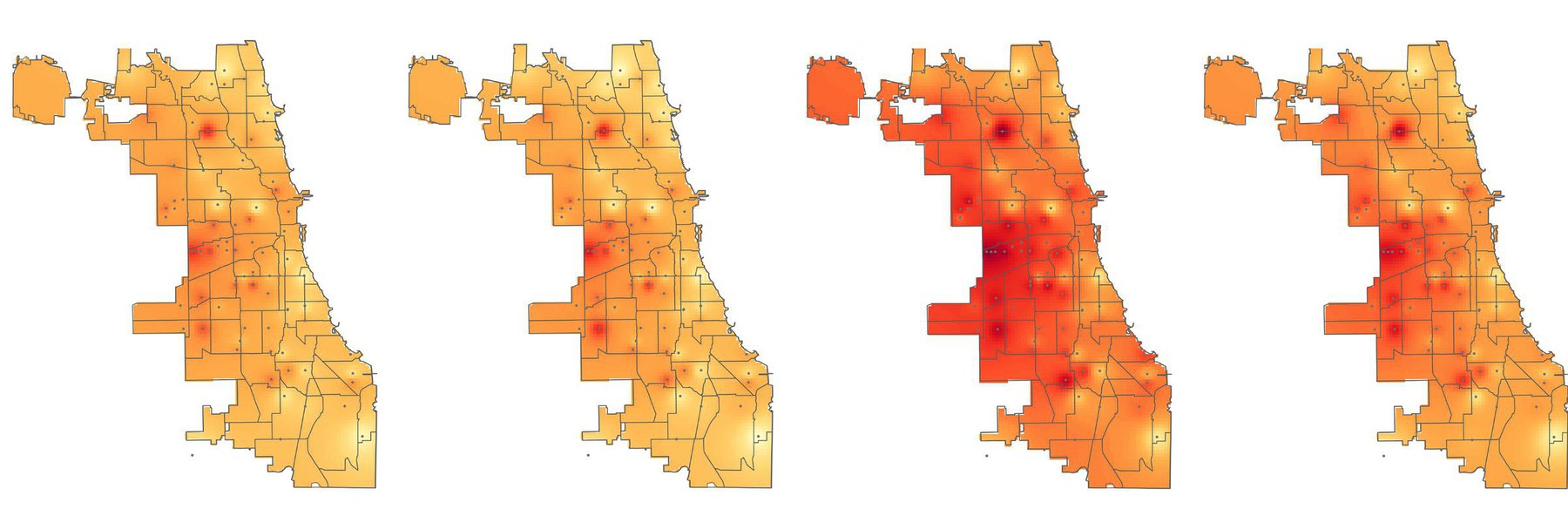Amazon investors introduce two votes limiting company’s facial recognition technology, contracts reveal that the “trade secret” of ransomware firms is to pay off hackers directly by charging clients extra, and Chicago’s City Council legislative committees fuel a system of patronage and cronyism.
See a great use of public records we missed? Send over your favorite FOIA stories via email, on Twitter, or on Facebook, and maybe we’ll include them in the next round-up. And if you’d like even more inspiration, read past round-ups.
Amazon investors vote on the ethics of facial recognition technology
At Amazon’s annual shareholder meeting last Wednesday, investors introduced two proposals to potentially curtail the tech magnate’s own push to develop facial recognition technology. One measure would prohibit the sale of the facial recognition system, called Amazon Rekognition, to government agencies, barring the board decision that Rekognition does not facilitate human rights violations. The second proposal would commission an independent report examining the extent to which Rekognition may threaten civil, human and privacy rights, and the company’s finances.
Thanks to a FOIA request by the Project on Government Oversight, Amazon was discovered to have pitched its facial recognition services to Immigration and Customs Enforcement, inspiring public and investor backlash.
Read the full story here.
Trade secrets of data recovery firms: Just pay the hackers
According to a ProPublica investigation and several public records requests, top U.S. data recovery firms usually respond to costly data breaches by communicating directly with hackers, despite offering high-tech protections against ransomware attacks. MonsterCloud, one Florida-based data recovery firm, was found to pay ransoms, sometimes without informing the victims.
One MonsterCloud contract, obtained through a public records request, called the firm’s strategy of communicating with cyber attackers a “trade secret” that could be withheld from the public. MonsterCloud, like the other data recovery firms investigated by ProPublica, would charge clients massive additional fees on top of the ransom costs.
Read the full story here.
Chicago City Council committees rooted in corruption and mismanagement
Instead of offering governmental oversight or new legislation, the Chicago City Council’s 16 legislative committees fuel a system of cronyism and political favor-trading, expensing city taxpayers at their own personal whims. According to Illinois Freedom of Information Act requests and extensive reporting by ProPublica Illinois, Transportation Committee chair Anthony Beale has spent part of his committee’s $467,000 budget on his personal Chevy Tahoe SUV, thousands of dollars in parking expenses, and a bourbon cherry wardrobe cabinet for his City Hall office.
Beale is not alone. Chicago alderman have taken explicit steps to insulate the budgetary autonomy of legislative committees from public oversight, voting 25-23 in 2016 to kill a proposal that would have allowed the city’s inspector general to investigate and audit the council.
Read the full story here.
Read a great FOIA-based news story we should highlight? Let us know and maybe we can include it in our next roundup! Send it over via email, on Twitter, or on Facebook.
Image via Wikimedia Commons




